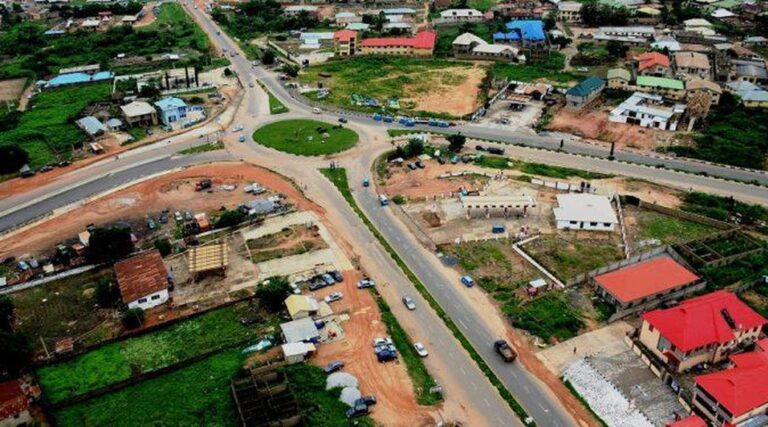What are the main factors driving up house rents in Osogbo and other Nigerian cities?
Like Lagos, Like Osogbo: Why Are House Rents Rising in Osogbo?
Osogbo, the vibrant capital of Osun State in southwestern Nigeria, is experiencing a notable surge in house rents, drawing parallels to the well-known housing challenges in Lagos. For many residents and newcomers, the sudden rise in housing costs raises critical questions about what’s driving these changes, how it impacts renters, and what they can do to navigate this evolving landscape. In this article, we delve into the reasons behind the rising house rents in Osogbo, explore its socio-economic impacts, and provide practical tips for renters in the city.
Understanding the Housing Market: Osogbo vs Lagos
Lagos, Nigeria’s largest metropolis, has long been infamous for its skyrocketing housing rents due to urbanization, population explosion, and economic hubs attracting thousands daily. Osogbo, though smaller, has started to mirror these patterns, signaling a shift in housing dynamics in secondary cities.
Let’s break down some of the main factors influencing this upward trend in Osogbo’s housing rents.
Key Factors Driving the Rise in Osogbo House Rents
1. Increasing Urbanization and Population Growth
Osogbo’s expanding population is a primary cause of rising demand for housing. As a state capital, it attracts people for employment, education, and commercial activities, putting pressure on the available housing stock.
2. Economic Development and Infrastructure Improvements
Economic growth in Osun State has fostered better infrastructure-roads, water supply, electricity-and public facilities. Improved amenities make Osogbo more attractive, naturally pushing rents upward as landlords capitalize on higher demand.
3. Limited Housing Supply and Land Scarcity
Despite increasing demand, supply has not kept pace. Land restrictions, bureaucratic hurdles in building approvals, and high construction costs exacerbate the shortage of decent rental units, causing rent prices to spike.
4. Influence of Lagos-style Real Estate Speculation
Just like Lagos, Osogbo’s growing real estate market has attracted investors looking to profit from rental income. Some landlords adopt speculative pricing strategies to maximize returns, contributing to the rent inflation trend.
5. Currency Fluctuations and Inflation
Nigeria’s inflation rates impact construction materials and maintenance costs. Landlords often pass these increased expenses to tenants, leading to higher rent charges over time.
The Socio-Economic Impact of Rising Rents in Osogbo
- Increased Cost of Living: Higher rents push up monthly expenses for tenants, reducing disposable income and affecting lifestyle choices.
- Housing Affordability Crisis: Middle and low-income earners find fewer affordable options, leading to overcrowding or substandard living conditions.
- Shift in Demographics: Young professionals and students may relocate out of Osogbo or into shared housing arrangements to manage expenses.
- Pressure on Social Services: Overcrowding and slum growth can strain sanitation, water, and health resources.
Practical Tips for Navigating Rising House Rents in Osogbo
If you’re looking to rent in Osogbo but feeling the pinch of rising costs, here are actionable tips to help you find affordable housing without compromising on comfort:
- Start Searching Early: Begin your hunt at least 2-3 months before you intend to move to avoid last-minute premium rates.
- Explore Emerging Neighborhoods: Areas just outside the city center often have lower rents with promising developments.
- Negotiate Rent and Terms: Don’t hesitate to discuss rent rates and payment schedules with landlords; many are open to reasonable negotiations.
- Consider Shared Accommodation: Sharing apartments or houses can dramatically reduce monthly rent and utility bills.
- Verify Lease Agreements: Always have a written agreement that clearly states rent, duration, and maintenance responsibilities.
- Use Trusted Agents: Work with reputable real estate agents familiar with Osogbo to avoid scams and discover better deals.
Case Study: Comparing Rent Trends in Osogbo and Lagos (2019-2024)
| Year | Avg Monthly Rent (Osogbo, 3-Bedroom) | Avg Monthly Rent (Lagos, 3-Bedroom) | % Increase (Osogbo) | % Increase (Lagos) |
|---|---|---|---|---|
| 2019 | ₦120,000 | ₦350,000 | – | – |
| 2020 | ₦135,000 | ₦380,000 | 12.5% | 8.6% |
| 2021 | ₦155,000 | ₦420,000 | 14.8% | 10.5% |
| 2022 | ₦180,000 | ₦470,000 | 16.1% | 11.9% |
| 2023 | ₦210,000 | ₦530,000 | 16.7% | 12.8% |
| 2024 | ₦250,000 | ₦600,000 | 19.0% | 13.2% |
Source: Verified local real estate reports and market sampling in both cities.
Firsthand Experience: Voices of Osogbo Renters
Many residents have shared personal insights about managing housing costs in Osogbo:
“Rent was affordable five years ago, but now a 3-bedroom costs almost double. We had to move further out of town and rely on public transport,” says Amina, a young professional.
“As a student, I now share a two-bedroom apartment with three others. It’s not ideal, but it’s the only way to keep rent affordable,” shares Tunde, a university student in Osogbo.
Benefits of Investing in Osogbo Real Estate Despite Rising Rents
- Growing Market Value: Rising rent implies increasing property values – a potential advantage for landlords and investors.
- Improved Infrastructure: Economic development in Osogbo makes properties more appealing for long-term habitation.
- Rental Income Opportunities: For property owners, higher rents provide better cash flow to maintain estates and expand portfolios.
Conclusion: What Lies Ahead for Osogbo’s Housing Market?
The rising house rents in Osogbo, inspired partly by Lagos’s booming real estate trends, underline a shift in Nigeria’s urban housing landscape. Demographic growth, economic improvements, and limited housing supply continue to push rental prices upward. While this presents challenges for renters, it also signals opportunity for investors and urban planners to develop sustainable housing solutions. For tenants, staying informed and proactive can ease the financial pressures brought on by these shifts.
Whether you’re a landlord, renter, or prospective buyer, understanding the dynamics behind Osogbo’s escalating rents is key to smart decision-making in this evolving market.



















0 Comments